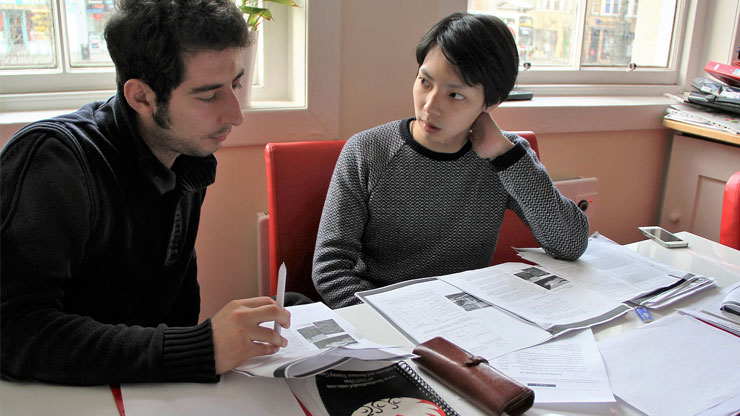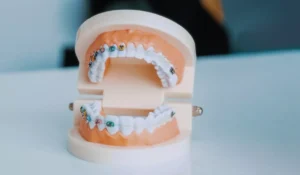The trouble caused by expressive language disorder is always bothersome but can treat technically and patiently through various speech therapies.
Quite naturally, some late talkers grasp the traditional language milestones a bit late in the first three years of their life, but once through with, they become flawless speakers. If they fail to do so, they are sure to be suffering from the expressive language disorder.
What does expressive language disorder mean?
When a child finds it difficult to deliver information through expressive speech, writing or sign language, he is said to have an expressive language delay. Such a child keeps struggling with suitable vocabulary, grammatically correct and long complex sentences, recalling and remembering words. Words often fail him though he is quite able to understand verbal and written communication all the same.
Types of Expressive Language Disorder
Usually, expressive language impairment has two types:
- Developmental expressive language disorder shows itself up simultaneously when kids are in the phase of learning the language first time in their life.
- Acquired expressive language disorder appears in adults as a result of a stroke or some damage to the brain even though they had got a quite normal language development earlier during their childhood.
What Causes It to Happen?
If your child is a victim of toddler speech delay and is showing signs of poor expressive language, you must be aware of which of the following is the prime most reason behind all this.
- There may be involved some genetic factors which, out of hard-luck, have become dominant in your child and he is just carrying a history of language disorder. However, being genetically vulnerable never means that one is sure to develop expressive language difficulties.
- DELD (Developmental Expressive Language Disorder) has nothing to do with the level of intelligence of your ward. Despite having some expressive language problems, the child may be excellent at grasping the words spoken to him, reading a book or writing a story on its own.
- Sometimes expressive language disorders may have a close association with other issues like autism, hearing impairments or loss. The symptoms in such cases get worsened. In the case of a damaged CNS (Central Nervous System), the child may develop aphasia.
- The causes for the acquired expressive language disorder in adults may be a stroke, a brain tumor, seizures, a brain injury, malnutrition, etc.
- An accompanying receptive language disorder showing difficulty to understand the language may also affect many of the children suffering from trouble with expressive language.
What Symptoms Does the Victim Show?
Usually, the victim child has acute problems in speaking long phrases or complex sentences. His vocabulary is smaller and more basic as compared to that of his age fellows. A lot of grammatical errors are besides because of the inability to join words and phrases in a meaningful combination. He tends to speak only two-to-three-word sentences and often repeats the question asked from him instead of making a logical reply on his own.
Different children show different symptoms depending upon their age and the degree or intensity of the disorder. However, a typical victim shows the following usual symptoms.
- Inability to join words to make phrases and sentences to express thoughts and ideas.
- Failure to remember and recall proper words.
- Lack of potential to use language in a variety of settings (at home, at school, with relatives, etc.).
- No correct grammatical formations using all the parts of speech properly. For example, instead of saying ‘He is playing Football now’, he says, ’He playing Football’.
- Habitual of making shorter sentences with fewer words and more basic vocabulary as compared to those from the children of the same age.
- Always struggling to find the right or specific words and frequently failing to do so. Hence, he/she often speaks sentences with confusing meanings.
- Never daring to start a conversation or hold it for a few minutes. Instead, the victim relies on the standard phrases and limited content if he/she speaks at all, for he/she is hesitant or reluctant to converse and tries to keep silent most of the time.
- Often failing to come to the point or state his idea in an organized or cohesive way.
- Facing a lot of problems while doing oral or written tasks.
Some specific examples of expressive language impairment
A lot may be quoted under it, but here are a few real-life examples.
- A six-year-old child next to my home is still unable to use any linking or connecting words like ‘and’, ‘but’, ‘if’, ‘as’, ‘which’, ‘until’, etc. He says, “I went to play. I could not play. It was raining.” Whereas he should say, “I went to play, but couldn’t as it was raining.”
- A four-year-old girl of my friend still speaks two to three-word sentences. She says, “Brother bag.” while she should say, “That is my brother’s bag.”
- My cousin’s son of five years says, “I am going to school daily and working.” He should say, “I go to school daily and work over there.”
These and many others show that children with expressive language problems speak a language that needs to be refined a lot.
Steps Involved in Diagnosing the Language Issue
The proper treatment of DELD depends upon how accurately you diagnose it. If you observe your child struggling with speaking and having issues while using the language, you must:
- Immediately take him to a speech pathologist or therapist to get his language skills assessed efficiently.
- Not only should this be but you also consult a professional audiologist to have your child’s hearing tested professionally.
To make his diagnoses more authentic, the therapist may also recommend:
- APT or auditory processing test, totally different from a standard hearing test.
- CFA or cognitive function assessment to get your child’s thinking and intelligence level judged by a professional psychologist.
- A test to determine the learning difficulties.
Having diagnosed the disorder properly, you must now move to get it treated professionally.
How to get the ELD treated and recovered?
No treatment option can cure it in a day or two. This is a slow process passing through long sessions with the professionals. The overall treatment may include the following.
- Several individual therapy sessions with the professionally competent speech therapist to boost up the morale of the victim.
- A lot of group sessions with the speech pathologist to inspire confidence in the child.
- Language intervention programs at the school level. The child will feel more comfortable interacting with his classmates and the teacher.
- Healthy assistance from the teachers imparting special education.
- A special teacher’s aide support—if the child is suffering from high degree language impairment—can go a long way towards a quicker recovery.
- Home speech therapy programs involving the parents always do the trick under the professional guidance of a speech therapist.
Following the above comprehensive approach will hopefully solve the expressive language disorder of your child as soon as possible.



